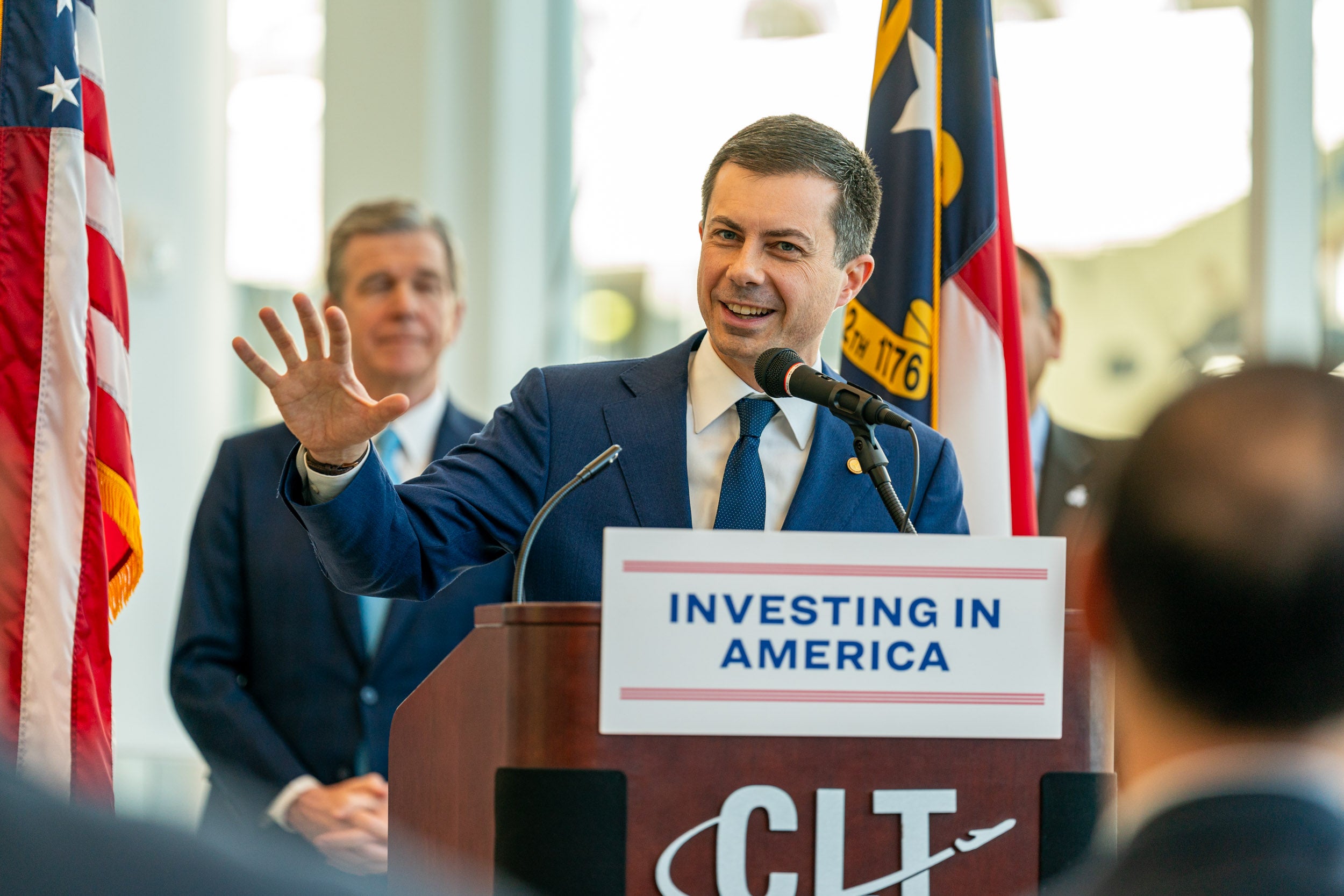Even as the Biden administration prepares to leave office in just over a month, it’s getting the ball rolling on possible new rules that could mean compensation for passengers when a flight is canceled, changed delayed and it’s the airline’s fault.
The U.S. Department of Transportation issued an advance notice of proposed rulemaking Thursday that would require carriers to compensate passengers at least $200 when their flight is disrupted by three hours or more, in cases where the disruption is deemed the airline’s responsibility.
Passengers could be eligible for higher compensation levels when there’s a longer disruption.
The proposed rules, if ultimately finalized, would bring U.S. passenger rights more closely in line with those afforded to consumers across the Atlantic under the provision known as EU261.
“This action we’re announcing is another step forward into a better era for commercial air travel—where the flying public is better protected and passengers aren’t expected to bear the cost of disruptions caused by airlines,” Transportation Secretary Pete Buttigieg said in a statement announcing the news.
Here’s the catch, though: Thursday’s notice of proposed rulemaking only starts the consideration process for the potential passenger compensation rules. At a minimum, the public would get 60 days to weigh in before the DOT would take any further action.
60 days from now, it will be early February — and the nation will be weeks into the administration of President-elect Donald Trump.
That means the incoming Trump administration would, ultimately, have the final say on how — and whether — to proceed.
Related: Airlines face Capitol Hill grilling over rising add-on fees and ‘bag bounties’
Proposed compensation rules
The DOT’s proposed compensation rules would call on airlines to pay at least $200 to passengers whose trip is disrupted by three to six hours for a domestic flight. This could apply to cases where there’s a delay, a cancellation, or when the airline significantly changes a traveler’s itinerary.
Passengers facing disruptions of between six and nine hours could be compensated at least $375, with payments of at least $750 for passengers whose trips are delayed by nine hours or more.
The DOT also announced it’s considering formalizing passenger protections for meals, unexpected hotel stays and ground transportation costs in the event of flight disruptions — as well as rules for rebooking passengers on the next available flight.
These compensation requirements would apply in the event of “controllable” disruptions — in other words, flight problems deemed to be the airline’s responsibility (think maintenance and tech outages, but not bad weather).
Building on existing protections
Several of the largest U.S. airlines have already promised coverage for meals, impromptu hotel stays and transit to and from the airport when there’s a “controllable” delay or cancellation. Those guarantees are spelled out through a federal dashboard created by the DOT in recent years. But when to offer those protections — and whether to at all — ultimately remains up to the airline’s discretion, the department pointed out.
The new measures under consideration would strengthen those passenger protections into fully enforceable DOT rules.
It’s worth noting, this rulemaking process also comes just weeks after new, stricter refund requirements pushed by the DOT under Buttigieg, and passed by Congress, took effect.

However, those requirements largely focused on how quickly, and how easily, passengers get refunds when they’re owed one; by and large, the law didn’t change much of the criteria that determines a passenger’s refund eligibility in the first place.
Under DOT policy, passengers are owed a refund for the unflown portion of their trip if their flight is canceled or significantly delayed, and they choose not to travel instead of accepting rebooking.
Airline industry responds
A trade group for the largest U.S. airlines said carriers already “are providing automatic refunds if the passenger chooses not to be rebooked—regardless of whether the significant delay or cancellation is within the carrier’s control.”
“Mandating additional cash compensation—beyond what airlines already provide—will drive up ticket prices, make air travel less accessible for price-sensitive travelers and negatively impact carrier operations,” Airlines for America said in a statement to TPG.
Related reading:
- When is the best time to book flights for the cheapest airfare?
- The best airline credit cards
- What exactly are airline miles, anyway?
- 6 real-life strategies you can use when your flight is canceled or delayed
- Maximize your airfare: The best credit cards for booking flights
- The best credit cards to reach elite status
- What are points and miles worth? TPG’s monthly valuations
